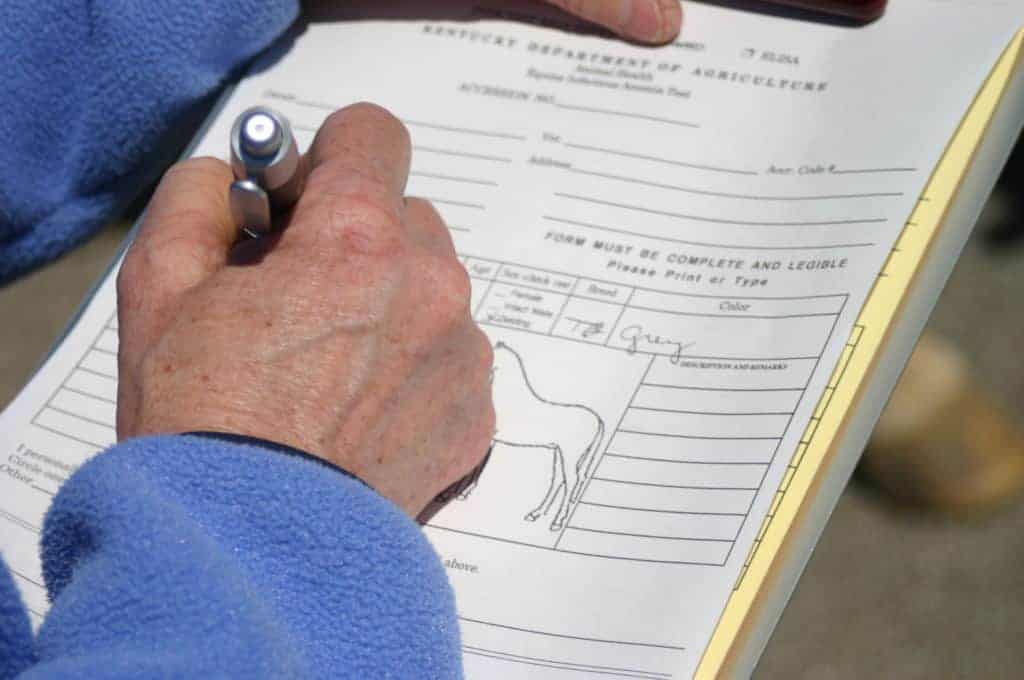The Clinical Signs of Equine Colic

Learn to identify these common and important signs of colic in horses–doing so might save your horse’s life.
Equine Coronavirus: An Enteric Virus of Adult Horses

Coronavirus is associated with disease outbreaks in adult horses in Japan and the United States. Learn more.
Equine Rabies: What You Should Know About this Fatal Disease

While the incidence of rabies is low, the fatality rate is high: 100%. Learn how to protect your horse.
Rabies in Horses: What to Know

Rabies is life-threatening to horses and humans. Learn about the disease and how to protect yourself and your horse.
10 Early Warning Signs of Laminitis

Your horse’s best chance of overcoming this hoof disease might lie in your ability to catch it early.
Strangles in Horses: Predicting Disease and Complications

Few study horses with strangles showed the “classic” signs of disease, researchers determined.
Test Horses Annually for Equine Infectious Anemia

Here’s why following testing regulations for equine infectious anemia is critical to maintaining good horse health.
A Fresh Look at Heaves

Researchers’ definition of this respiratory issue continues to evolve. Here’s what we currently know.
Heaves, COPD, RAO, or Simply Equine Asthma?

What’s the difference between heaves, COPD, RAO, and equine asthma? Dr. Laurent Couetil explains.
It’s All Foreign to Me

Find out which foreign animal diseases North American horse owners need to keep an eye on and why.
Recurrent Colic Risk Factors Identified

Researchers found that as horses’ pasture time increased, repeat colic risk decreased. But with stereotypies came an increased risk of repeat colic.
Strangles Signs, Risk Factors, and Complications Evaluated

If your horse had strangles, would you be able to tell? He’d probably have those token swollen lymph nodes, right? It’s possible, but researchers recently determined that these signs alone aren’t the only ones that should prompt a strangles test.
Gastric Ulcers: Maintaining Horses’ Stomach Health

Being aware of the risk factors associated with gastric ulcers in horses is an important step in preventing them.
Diagnosing and Treating Gastric Ulcers in Horses

The majority of horses with gastric ulcers do not show outward clinical signs.
Diagnosing, Treating, and Managing Equine Recurrent Uveitis

Veterinarians have learned how to best control this disease and are working to unravel new treatment options.
Diagnosing and Managing Tetanus and Botulism in Horses

Vaccination reduces horses’ risk of contracting tetanus and botulism, two often-fatal diseases.







